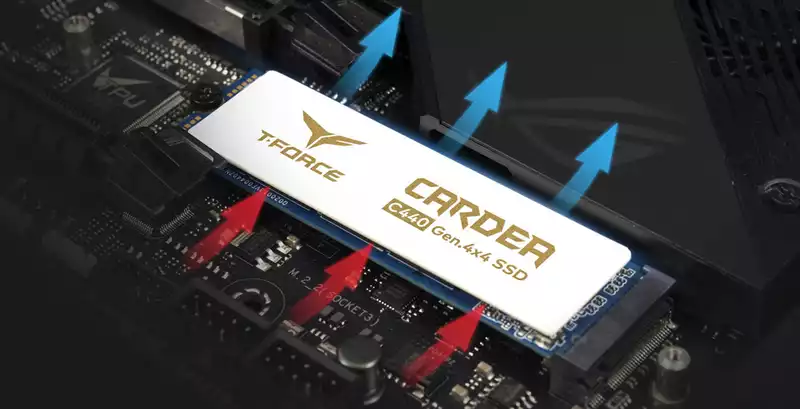Team Group claims to offer the first SSD with ceramic composite coolant. It worked well in pots and pans, so why not in SSDs?
Unlike pots and pans, however, the goal of an SSD's heat sink is not to cook anything (CPUs are good for pancakes), but to cool the NAND flash memory chips beneath it. This is especially important with the new PCI Express 4.0 models, which deliver fast sequential read/write speeds of 5,000 MB/sec (and beyond). If they get too hot, performance will suffer.
Throttling is unavoidable even with heat sinks, but the better the heat dissipation, the longer the SSD can achieve higher levels of performance.
This is what makes Team Group's new T-Force Cardea Ceramic C440 SSD product line so attractive. These are PCIe 4.0 drives that, when slotted into at least an X570 or B550 motherboard and paired with a Ryzen 3000 series CPU (currently only AMD's newest platforms support PCIe 4.0), can achieve up to 5,000 sequential read MB/sec and sequential writes up to 4,400 MB/sec when paired with a Ryzen 3000 series CPU (currently only AMD's newest platform supports PCIe 4.0). These figures are similar to the recently introduced Sabrent Rocket 2TB PCIe 4.0 drive, presumably using the Phison E16 controller. This drive will work on other platforms, but will not see the same level of performance.
As for cooling, Team Group states that it is basically excellent.
"The use of aerospace ceramic composite coolant not only provides excellent heat dissipation, but also reduces heat by 18% when the case is equipped with fans," Team Group states.
We are very interested to see how this compares to SSDs using traditional aluminum heatsinks. Ceramic heatsinks are not new, they just have not been used in SSDs before. After much research, Kitagawa Kogyo, a manufacturer of EMI shielding and thermal management components, points out that ceramic heat sinks are lighter and dissipate heat better than aluminum
.
"Compared to conventional aluminum, the combination of a large surface area and high levels of thermal radiation due to the porous structure results in superior heat dissipation," the company states.
Team Group will offer these drives in 2TB and 1TB capacities, each with a 5-year warranty. Pricing and availability have not been announced.


Comments